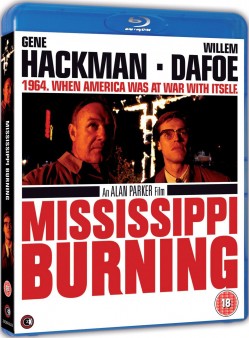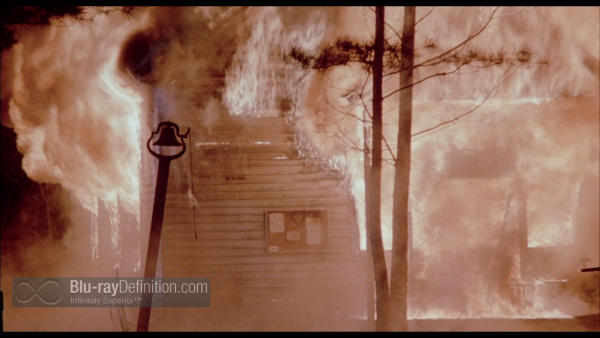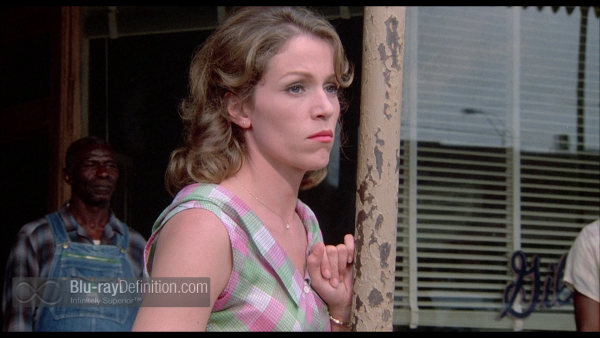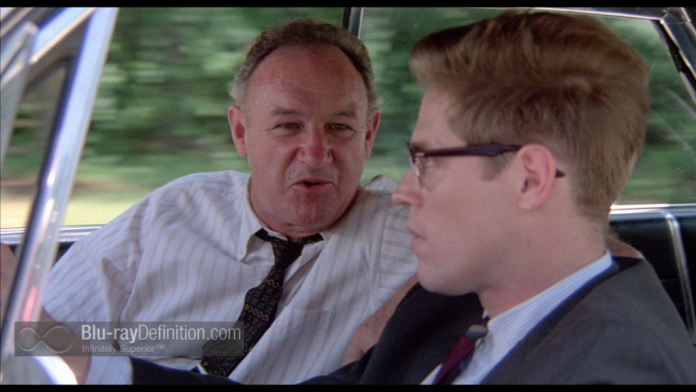
The all-star cast includes Gene Hackman and Willem Dafoe as a pair of FBI agents, Rupert Anderson and Alan Ward, assigned to investigate the disappearance of the missing civil rights activists, and Frances McDormand as a woman, Mrs. Pell, married to a local deputy, Clinton Pell (Brad Douriff), with ties to the Klan. Anderson (Hackman), the veteran 
The film gets right into the heart of the matter of America’s ongoing war with itself, that is the insanity and inanity of racism since its inception. And through the beautiful cinematography, often filled with barbarous violence of Mississippi ablaze and people being beat up or hanged, Mississippi Burning does indeed offer a powerful and provocative look at race relations in not only the South, but in America on the whole. It’s a message that still rings loudly today in a nation that seems forever in the vice of an internal conflict over race.
Mississippi Burning took home four Oscars in 1989 for Best Cinematography (Peter Biziou), Best Picture (Frederick Zollo, Robert F. Colesberry), Best Actor (Gene Hackman) and Best Supporting Actress (Frances McDormand).
The Picture

The Sound
The original soundtrack comes in LPCM 2.0 stereo (48kHz/16-bit). It provides clean dialogue that is well balanced with the score and also has good stereo panning of sound effects.
The Supplements
Mississippi Burning comes with a set of new extras that include a commentary with Alan Parker, an interview with Willem Dafoe, an interview with the director, and also an interview with writer Chris Gerolmo. All are worth taking in.
- Audio Commentary with Alan Parker
- Remembering Mississippi Burning: An Interview with Willem Dafoe (1.78:1; 1080p/24; 00:09:25)
- Through the Storm: An Interview with Alan Parker (1.78:1; 1080p/24; 00:20:33)
- Under Siege: An Interview with Chris Gerolmo (1.78:1; 1080p/24; 00:15:54)
The Final Assessment
Mississippi Burning stirred some controversy on both sides of the issue of racism and civil rights for its seemingly patronizing treatment of Blacks, intimating that the movement was reliant on the kindness of Whites to get a foothold. On the other side of the debate were those angered that the FBI was portrayed as being just as brutal as those racist Klansmen they sought to bring down. It is without a doubt impossible to create a film about such a hot button issue without setting off a firestorm of controversy about something, and perhaps that is a sign of just how well done this film, by an outsider looking in, the Brit Alan Parker, really is.
Be the first to leave a review.

